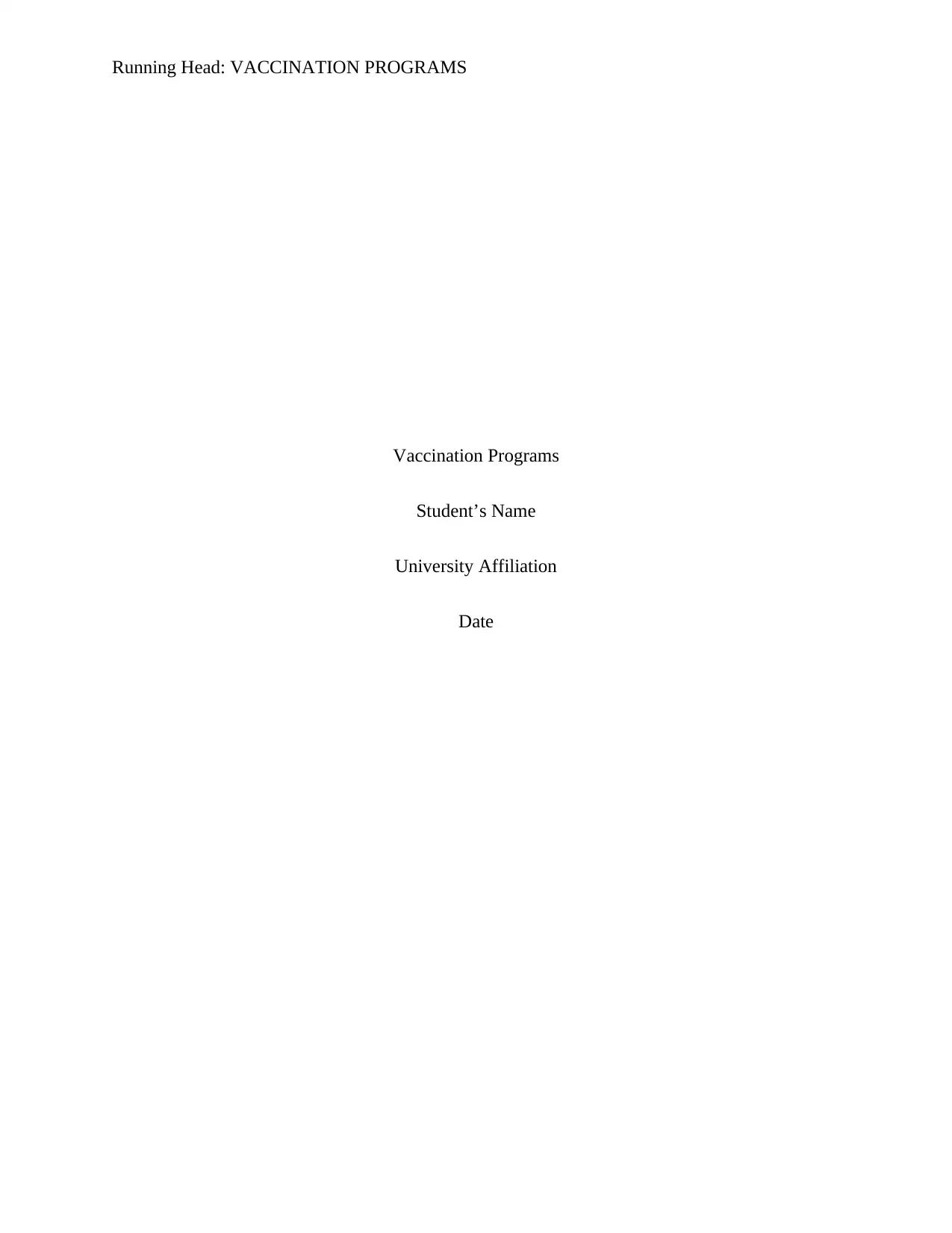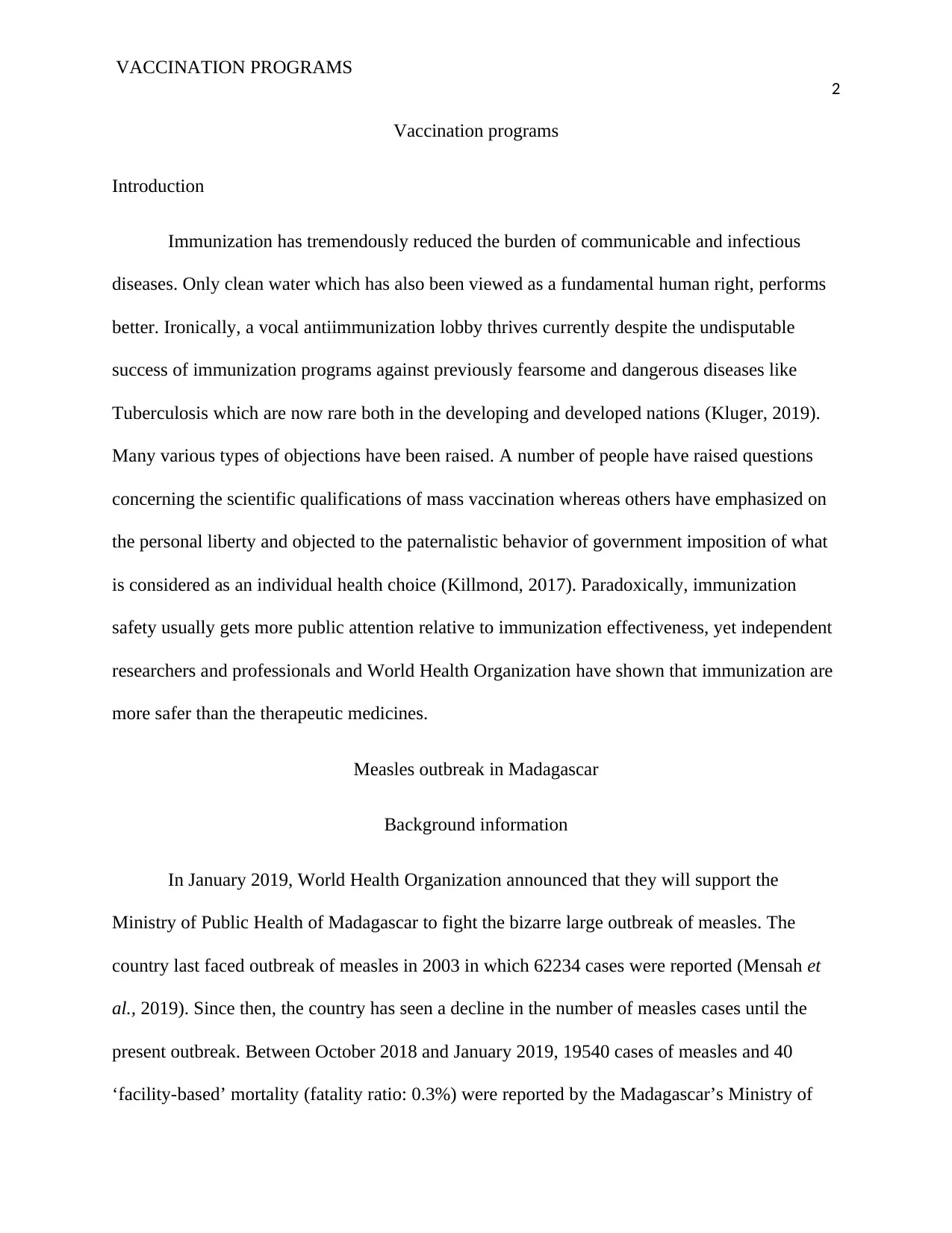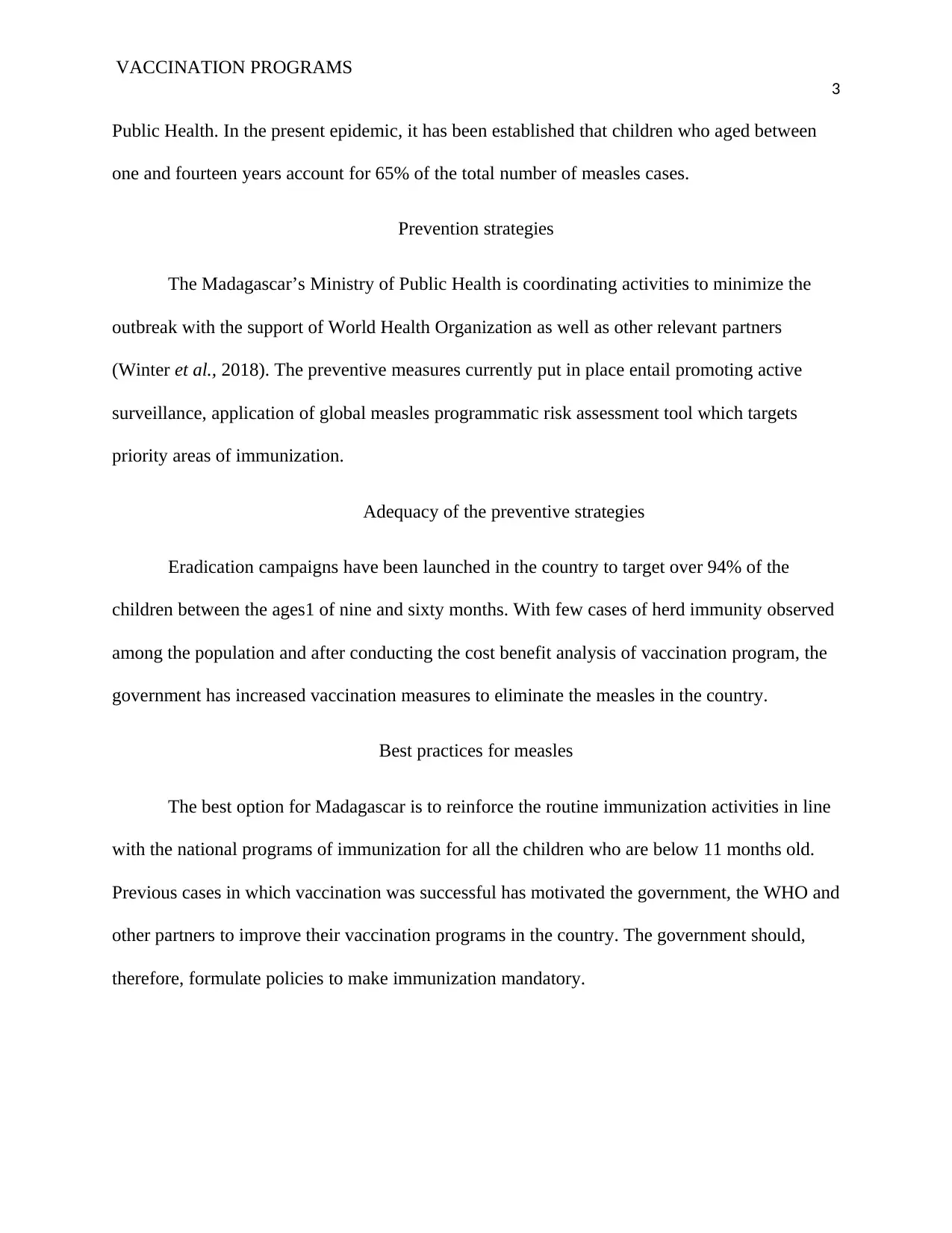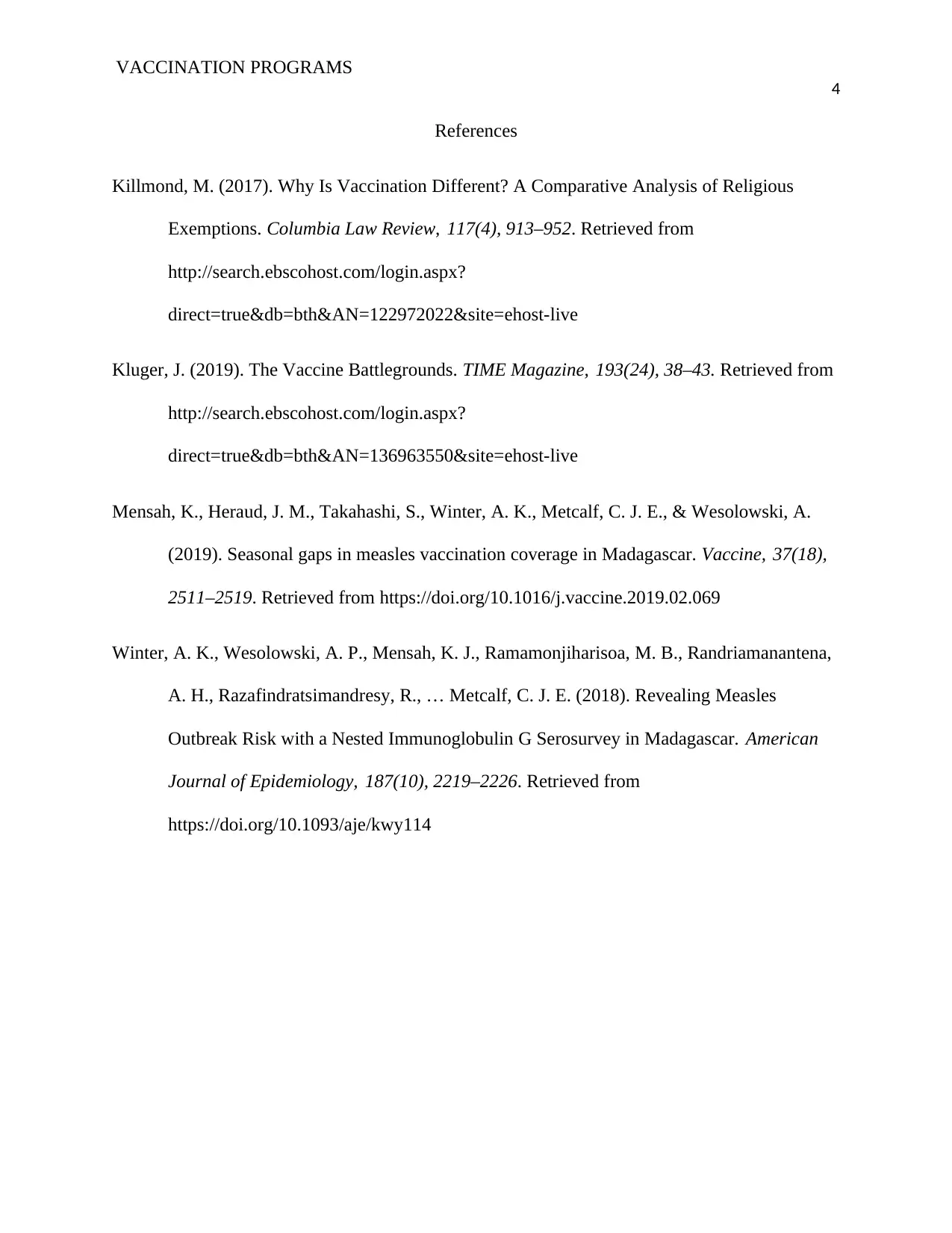Madagascar Measles Outbreak: Vaccination Programs and Strategies
VerifiedAdded on 2022/09/26
|4
|730
|28
Discussion Board Post
AI Summary
This discussion board post examines the measles outbreak in Madagascar and the effectiveness of vaccination programs. The assignment begins with an introduction to the importance of immunization and the current controversy surrounding it. It then provides background information on the measles outbreak in Madagascar, including the number of cases and fatalities. The post delves into the prevention strategies currently in place, such as active surveillance and targeted immunization campaigns, and assesses their adequacy. The assignment also incorporates key public health terms like herd immunity and cost-benefit analysis to evaluate the strategies. The author suggests best practices, including reinforcing routine immunization and making vaccination mandatory. The assignment concludes with a list of references to support the information presented, focusing on research and reports from the World Health Organization and other relevant sources.
1 out of 4











![[object Object]](/_next/static/media/star-bottom.7253800d.svg)